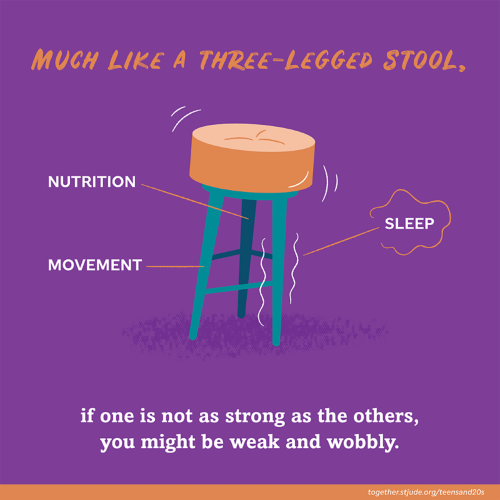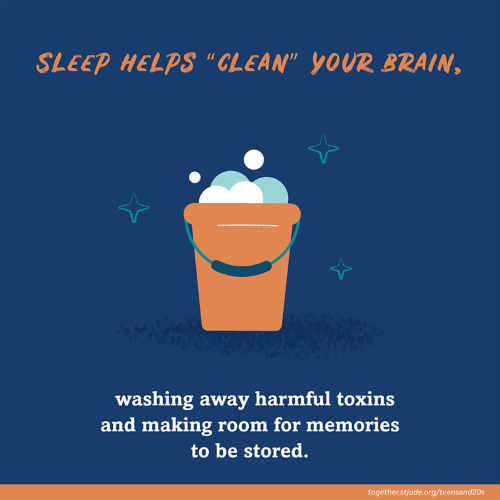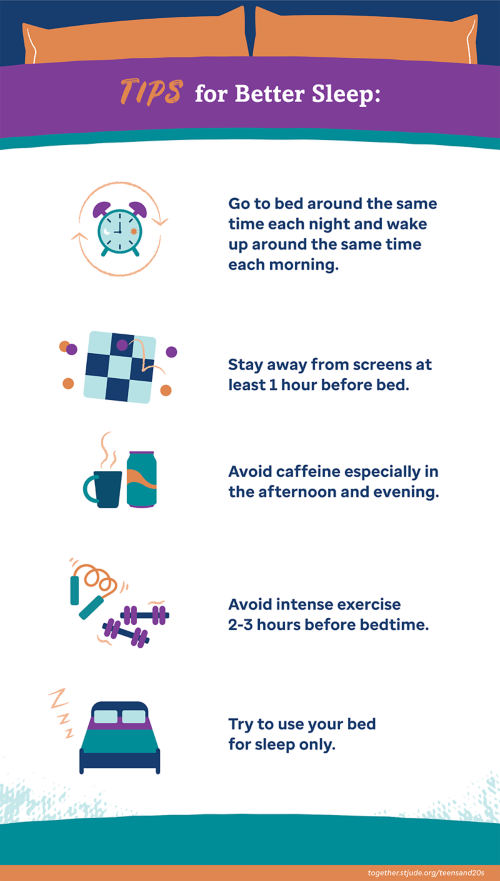Nutrition, movement, and sleep are the 3 pillars of health. They keep you healthy and balanced.
Much like a three-legged stool, if one is not as strong as the others, you might be weak and wobbly.
Of the three, sleep is likely the least valued in our fast-paced culture. But the right amount of quality sleep is a must for good health.
Why is sleep important?
Sleep helps “clean” your brain, washing away harmful toxins and making room for memories to be stored. When you don’t get enough sleep, it can make you feel sick and sluggish and even lead to weight gain. Poor or insufficient sleep is related to problems with organization, memory, academics, decision-making and mood regulation. Sleep affects almost every type of tissue and system in the body – from the brain, heart, and lungs to metabolism, immune function, mood, and disease resistance.
How much sleep do I need?
Teens 13-18 years old need 8-10 hours of sleep each day. Adults 18 and older need at least 7 hours.
Why do teens have problems getting enough sleep?
Teens are known for staying up late. There’s a biological reason behind that. Around the beginning of puberty, your circadian rhythms (sleep/wake cycles) become delayed. Your body doesn’t want to go to sleep before 10:30-11 p.m.
If you have to get up early for school (some schools start as early as 7 a.m.) and you aren’t ready to go to bed until 11 p.m. there is no way you can get the recommended amount of sleep. After a few nights, you will become sleep-deprived.
Spending too much time on electronic devices – especially at night – can also contribute to sleep problems.
Can cancer cause problems with sleep?
Sleep problems are a frequently reported symptom in cancer patients. Sometimes, these issues continue after therapy is over.
The most common problems in pediatric cancer patients are insomnia, excessive daytime sleepiness and cancer-related fatigue (not a sleep problem but can be related). Another sleep problem, delayed sleep-wake phase disorder, occurs almost exclusively in teens and young adults. Other nighttime problems may include poor sleep efficiency, obstructive sleep apnea, and restless legs syndrome.
Brain tumor patients may experience sleep disruption because of direct effects on sleep centers in the brain.
Radiation therapy and/or chemotherapy may be associated with sleep disruption or fatigue. Sleep may be affected by side effects, such as pain, anemia, or nausea.
Insomnia, sleepiness, and fatigue can happen because of anxiety, mood problems, and stress.




